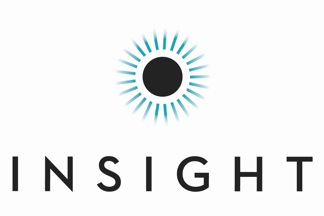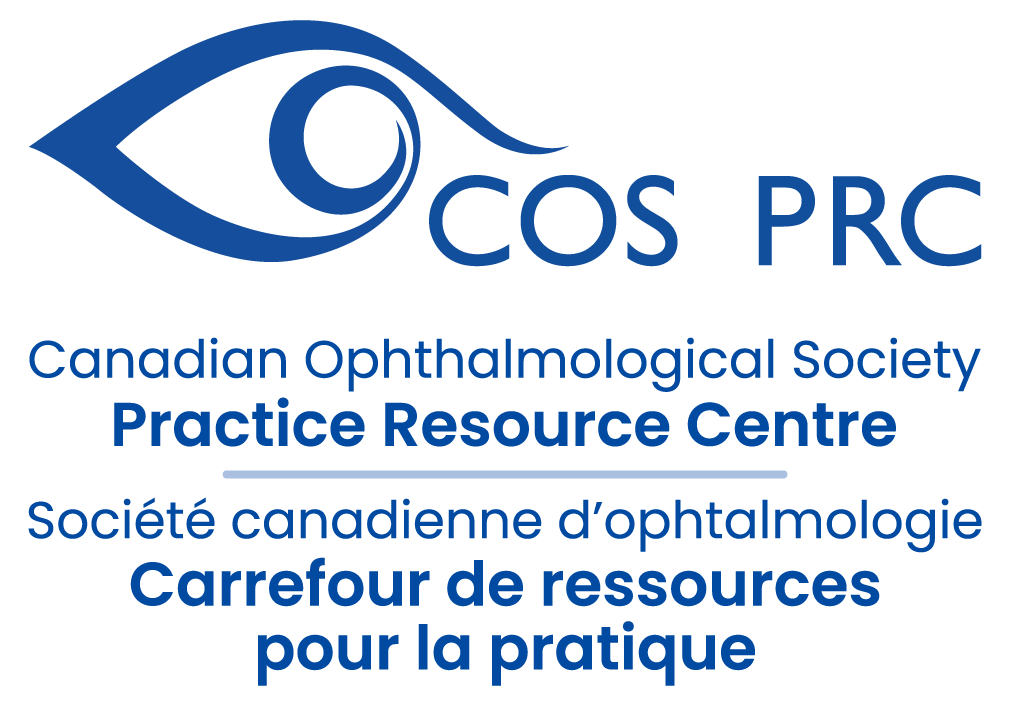RESIDENT TEACHING
Date: Friday October 23, 2020
Time: 8:45 AM – 11:45 AM – AAO 9
Topic: White dot syndrome & Panuveitis AND Pediatric Uveitis
Speaker(s): Drs. Alex Kaplan and Nasrin Tehrani
Zoom Link: https://us02web.zoom.us/j/81696926916?pwd=cDFkN2poQmFkRUZQOXZJbTY5Z0l3Zz09
Passcode: GF3ap6
Resident Teaching- Immunology for Ophthalmologists and Approach to Uveitis Diagnosis and Treatment (UofT residents only)
Date: Friday October 9, 2020
Time: 8:45 AM – 11:45 AM
Topic: Immunology for Ophthalmologists and Approach to Uveitis Diagnosis and Treatment (UofT residents only)
Speakers: Dr. Kathryn Pepple
Zoom Link : https://us02web.zoom.us/j/87315560519?pwd=NWRsVGRhZTkzSFh0L21PaXNua0VZZz09
What Scares You, Scares Me Too
Presented by Lesya Shuba, MD, PhD, FRCSC
This module will consist of interactive discussion of clinical cases, allowing participants to discuss some challenging clinical scenarios in glaucoma. Participants will have a chance to review common features of glaucoma as opposed to other optic neuropathies, discuss unusual cases of inflammatory glaucoma, the diagnostic and therapeutic dilemmas of glaucoma in high myopic individuals, and the challenges of dealing with pseudo-exfoliative glaucoma, among others. The clinical cases presented in this module were selected to generate discussion, with several particularities of the cases highlighting the “beyond the evidence” general theme for this program, where no clear right or wrong answer exists.
LEARNING OBJECTIVES
At the end of this session, participants will be able to:
- Discuss the differential diagnosis of optic neuropathy
- Review inflammatory glaucomas and how to correctly diagnose and treat them
- Discuss pearls and pitfalls of OCT imaging in glaucoma
- Management of pseudo-exfoliative glaucoma
- Discuss clues and management for conditions masquerading as glaucoma
Program Schedule
6:30 PM: Hors d’oeuvres
7:00 PM: Presentation
CPD CREDITS
This event is an Accredited Group Learning Activity (Section 1) as defined by the Maintenance of Certification program of the Royal College of Physicians and Surgeons of Canada, and approved by the Canadian Ophthalmological Society. Physicians may claim a maximum of 1.5 Section 1 credits.
Through an agreement between the Royal College of Physicians and Surgeons of Canada and the American Medical Association, physicians may convert Royal College MOC credits to AMA PRA Category 1 credits. Information on the process to convert Royal College MOC credit to AMA credit can be found on the AMA web site under Agreement with the Royal College of Physicians & Surgeons of Canada.
Physicians should only claim credit commensurate with the extent of their participation in the learning activity.
INSIGHT was co-developed with Allergan and was planned to achieve scientific integrity, objectivity, and balance. The use of the partner logo is ethically permissible.
More information on the INSIGHT Glaucoma Program

Post-LASIK IOL calculations
Ms. PRK tells me she isn’t overly worried about her refractive outcome following cataract surgery. But, she’s also had previous refractive which certainly causes me to raise a red flag! This is a patient who clearly cares (or at least previously cared!) about refraction!
I’m reflecting on the Toronto Cataract Course 2019 that took place in March, where I had a wonderful time connecting with colleagues, learning new insights, and picking up pearls. The knowledge I gleaned at this meeting will definitely help me to optimize refractive results for my cataract patients.
In particular, we are all aware of the challenges in selecting intraocular lens (IOL) powers for post-refractive patients undergoing cataract surgery. Over the years, a number of different approaches to dealing with this challenge have been developed, but there is room for further improvement. The scope of this problem will only grow as we encounter more post-refractive patients requiring cataract surgery.
I would like to highlight two links that serve as the backbone of post-refractive IOL calculations in 2019. The first is the ASCRS post-refractive IOL calculator, and the second is Graham Barrett’s True K post-LASIK calculator. Armed with these two resources, I think many of us will be able to more effectively tackle these interesting cases going forward.
ASCRS post-refractive IOL calculator: http://iolcalc.ascrs.org/ – please be mindful to pick the appropriate previous refractive surgery along the top.
The Barrett True K calculator: http://www.apacrs.org/barrett_true_K_universal_2/. With this calculator, please be sure to select the appropriate previous refractive surgery from the drop down menu.
Recommended by Dr. Amandeep Rai
Amandeep Rai, MD, FRCSC
Practice Resource Centre Committee Member
Imaging and Glaucoma Module
More information on the INSIGHT Glaucoma Program
Presented by Hady Saheb, MD, MPH, FRCSC
This module will consist of a practical and interactive session reviewing the basic and more advanced aspects of ocular coherence tomography (OCT) of the optic nerve. We will review a standardized approach to the optic nerve imaging printout and discuss straightforward cases of glaucoma diagnosis, common false positives and artifacts, as well as non-glaucomatous causes of abnormal optic nerve imaging. The same will be done for progression analyses.
LEARNING OBJECTIVES
At the end of this session, participants will be able to:
- Compare the advantages and disadvantages of optic nerve imaging versus optic nerve photography
- Evaluate an optic nerve imaging printout for the purpose of diagnosis of glaucoma
- Evaluate an optic nerve imaging printout for the purpose of progression of glaucoma
To RSVP, please contact:
Véronique Genest
[email protected]
514-237-7576
RSVP Deadline: Monday, December 3, 2018
CPD CREDITS
This event is an Accredited Group Learning Activity (Section 1) as defined by the Maintenance of Certification program of the Royal College of Physicians and Surgeons of Canada, and approved by the Canadian Ophthalmological Society. Physicians may claim a maximum of 1.5 Section 1 credits.
Through an agreement between the Royal College of Physicians and Surgeons of Canada and the American Medical Association, physicians may convert Royal College MOC credits to AMA PRA Category 1 credits. Information on the process to convert Royal College MOC credit to AMA credit.
Physicians should only claim credit commensurate with the extent of their participation in the learning activity.
INSIGHT was co-developed with Allergan and was planned to achieve scientific integrity, objectivity, and balance. The use of the partner logo is ethically permissible.

2019 Call For Abstracts
The COS is accepting abstracts for the following subspecialty sessions at the 2019 COS Annual Meeting in Québec, Quebec:
- Cataract surgery
- Cornea, external disease & refractive surgery
- Glaucoma
- Global and public health ophthalmology
- Neuro-ophthalmology
- Ocular regenerative medicine
- Oculoplastic & reconstructive surgery
- Ophthalmic pathology
- Pediatric ophthalmology and strabismus
- Retina
- Uveitis
- Vision rehabilitation
Prior to submitting your abstract, please review the abstract guidelines: 2019 ABSTRACT SUBMISSION GUIDELINES
2019 Retina World Congress
Target Audience
The intended audience for the activity is retina specialists and other health care professionals involved in the treatment of patients with retinal diseases.
Access Details
Canadian Retina Society Snapshot of the Month (SOTM) Submission
Resources that physicians use to enhance their awareness of new evidence, perspectives or findings that may be potentially relevant to their professional practice can be recorded under Section 2: Self-Learning – Scanning. Royal College Fellows may choose to pursue a Personal Learning Project (PLP) to develop an answer to a question, issue or problem identified in their professional practice that arose through viewing the SOTM.
AAO Meetings on Demand
Enjoy AAO 2018 All Year-Round. Choose from eight Subspecialty Day meetings or the AAOE Program; or save when you buy the complete package, which includes highlights from AAO 2018. Packages are available for members and nonmembers. Visit AAO Meetings on Demand for more information on pricing and available sessions.
Access to this product is available through Dec. 2021.
Section 2: Self-Learning (0.5 credits per activity)
Scanning: After viewing this Online Presentation, ophthalmologists may claim 0.5 credits as a scanning activity under Section 2 Self-learning in the Maintenance of Certification program of the Royal College of Physicians and Surgeons of Canada (RCPSC).
–Or–
Section 2: Planned Learning (2 credits per hour)
Personal Learning Plan: A Personal Learning Plan (PLP) is a self-initiated learning activity that is stimulated by a question, issue or dilemma in your professional practice. Watching these presentations may have stimulated a question for you about your practice. To complete a PLP, you will need to name the issue, dilemma or question within your practice scenario and identify opportunities to explore this further and reflect, whether through an activity, a conference or workshop, further reading, videos, etc. When complete you may establish what you have learned and/or the changes you anticipate implementing from this learning.
You can claim Section 2 Credits within the MOC Program for time spent developing your learning plan (2 credits per hour spent). You can also claim the time spent executing the research of that question or issue (participating in a conference, webinar or reading), as well as the time you spend reflecting.



